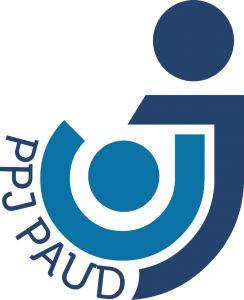PENGARUH PELATIHAN EMPATI MELALUI KARTU EKSPRESI EMOSI TERHADAP PERILAKU MENOLONG DAN PERILAKU AGRESIF PADA ANAK PRASEKOLAH
DOI:
https://doi.org/10.30736/jce.v1i1.1Abstract
This study aims to determine the effect of empathy training through emotional expression cards on helpful behavior and aggressive behavior in preschool children. The subjects of this study are the group B children of Bina Anak Sholeh kindergarten Tuban. It uses purposive random sampling technique. A total of 28 children were sampled and divided into 14 children as experimental and control group. The instruments used are image tests of helpful behavior and aggressive behavior. Data were analyzed by using Mann Whitney U Test to test two independent samples using SPSS 16 for windows. From the data analysis, it isknown that hypotheses 1, 2, and 3 are accepted, namely 1) The positive effect of empathy training through emotional expression cards on helpful behavior and aggressive behavior in experimental and control group; 2) The positive effect of empathy training through emotional expression cards on helpul behavior of
preschool children; 3) There is a negative effect of empathy training through emotional expression cards on aggressive behavior of preschool children.
References
Arikunto, S. Prosedur Penelitian Suatu Pendekatan Praktik, Jakarta: PT Rineka Cipta, 2006.
Badan Pusat Statistik. Statistik Non Parametrik. Modul Diklat Fungsional Statistisi Tingkat
Ahli
Baron & Byrne. Psikologi sosial, Alih Bahasa: Ratna Djuwita, Jakarta: Erlangga, 2005.
Beaty, J. J. Observasi Perkembangan Anak Usia Dini, Jakarta: Kencana Prenadamedia Group,
Dayakisni, T & Hudaniah. Psikologi Sosial, Malang: UMM Press, 2006.
Faturochman. Pengantar Psikologi Sosial, Yogyakarta: Pustaka Book Publishing, 2006.
Goleman, D. Emotional Intelligence Kecerdasan Emosional: Mengapa EI Lebih Penting dari
IQ, Alih Bahasa: T. Hermaya, Jakarta: Gramedia, 2002.
Gustian. Mempersiapkan Anak Masuk Sekolah, Jakarta: Erlangga, 2001.
Hurlock, E. B. Psikologi Perkembangan: Suatu Pendekatan Sepanjang Rentang Kehidupan,
Jakarta: Erlangga, 2004.
Indonesia Heritage Foundation. 9 Pilar Karakter, Jakarta: Gapprint, 2010.
Massardi, S & Yudhistira. Pendidikan Karakter dengan Metode Sentra, Jakarta: Esmass,
Prasetyo, B & Jannah, L. M. Metode Penelitian Kuantitatif, Jakarta: PT RajaGrafindo
Persada, 2007.
Pusat Bahasa. Kamus Besar Bahasa Indonesia edisi ke- 4, Departemen Pendidikan Nasional,
Jakarta: PT Gramedia Pustaka Utama, 2008.
Sabiq, Z & Djalali, M. A. Kecerdasan Emosi, Kecerdasan Spiritual dan Perilaku Prososial
Santri Pondok Pesantren Nasyrul Ulum Pamekasan. Persona, Jurnal Psikologi
Indonesia, Vol I, No. 2, 53-65, 2012.
Santrock, J. W. Perkembangan Anak, Jakarta: Erlangga, 2007.
--------, Perkembangan Anak, Jakarta: Erlangga, 2012.
Sobur, A. Psikologi Umum, Jakarta: Rajagrafindo, 2000.
Tanaya, K, K & Farid M. Pengaruh Cerita Moral Terhadap Perilaku Prososial Anak. Persona,
Jurnal Psikologi Indonesia, Vol. 2, 84-89, 2013.
Taufik. Empati: Pendekatan Psikologi Sosial, Jakarta: PT Rajagrafindo Persada, 2012.
Walgito, B. Pengantar Psikologi Umum, Yogyakarta: Andi Offset, 2004.
Downloads
Additional Files
Published
How to Cite
Issue
Section
License
Please find the rights and licenses in JCE (Journal of Childhood Education). By submitting the article/manuscript of the article, the author(s) agree with this policy. No specific document sign-off is required.
1. License
Use of articles will be governed by the Creative Commons Attribution - ShareAlike license as currently displayed on Creative Commons Attribution-ShareAlike 4.0 International License.
2. Author(s)' Warranties
The author warrants that the article is original, written by stated author(s), has not been published before, contains no unlawful statements, does not infringe the rights of others, is subject to copyright that is vested exclusively in the author and free of any third party rights, and that any necessary written permissions to quote from other sources have been obtained by the author(s).
3. User Rights
JCE (Journal of Childhood Education)'s spirit is to disseminate articles published are as free as possible but there is a little payment for publication. Under the Creative Commons license, JCE (Journal of Childhood Education) permits users to copy, distribute, display, and perform the work for commercial purposes. Users will also need to attribute authors and JCE (Journal of Childhood Education) on distributing works in the journal and other media of publications.
4. Co-Authorship
If the article was jointly prepared by more than one author, any authors submitting the manuscript warrants that he/she has been authorized by all co-authors to be agreed on this copyright and license notice (agreement) on their behalf, and agrees to inform his/her co-authors of the terms of this policy. JCE (Journal of Childhood Education) will not be held liable for anything that may arise due to the author(s) internal dispute. JCE (Journal of Childhood Education) will only communicate with the corresponding author.
5. Miscellaneous
JCE (Journal of Childhood Education) will publish the article (or have it published) in the journal if the article’s editorial process is successfully completed. JCE (Journal of Childhood Education)'s editors may modify the article to a style of punctuation, spelling, capitalization, referencing and usage that deems appropriate. The author acknowledges that the article may be published so that it will be publicly accessible and such access will be free of charge for the readers as mentioned in point 3.
JCE (Journal of Childhood Education) by Universitas Islam Lamongan is licensed under a Creative Commons Attribution-ShareAlike 4.0 International License.Based on a work at http://journalfai.unisla.ac.id/index.php/jce.












